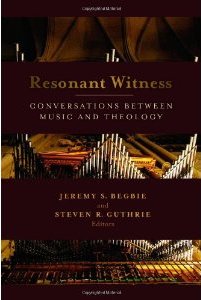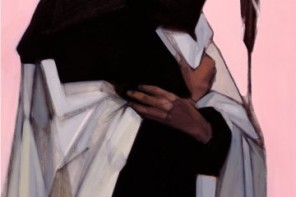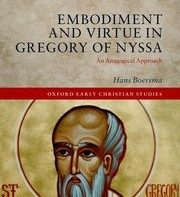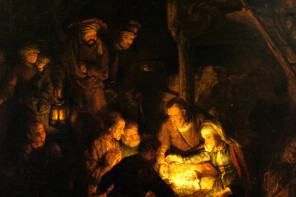 Jeremy S. Begbie & Steven R. Guthrie (eds), Resonant Witness: Conversations Between Music and Theology (Grand Rapids, MI: Eerdmans, 2011).
Jeremy S. Begbie & Steven R. Guthrie (eds), Resonant Witness: Conversations Between Music and Theology (Grand Rapids, MI: Eerdmans, 2011).
The aim of this roughly 500-page-long anthology is to “demonstrate the fruitfulness of theology for music, and the fruitfulness of music for theology” (4). This book hopes to encourage more research in this field by continuing recent initiatives to bring theology and music into dialogue. This review provides a concise overview of the articles contained in the volume.
The essays are divided into four sections:
1) Music and Cosmos
This section begins with Carol Harrison’s thought-provoking reading of relevant passages in Augustine’s Confessions, On Music and On Order. Nancy van Deusen continues the discussion of Augustine in an article on Western music, theology, and the 13th-century reception of Aristotle. Joyce Irwin then explores “The Relationship between Music and God’s Word in the First Two Centuries of German Lutheranism,” particularly focusing on the interpretation (or misinterpretation) of Luther’s sentiments and the role of music in preaching the Gospel.
Jeremy Begbie follows with “Created Beauty: The Witness of J. S. Bach.” Using the music of Bach, Begbie argues that “natural and artistic beauty” are compatible; art is a gift from God with which human beings can interact to “anticipate the beauty previewed and promised in Jesus Christ” (108). The section concludes with John Paul Ito’s conversation between Pythagoras, Polkinghorne and McGrath, suggesting where science and creation meet.
2) Music and Culture
The next section starts with Daniel Chua’s tour of the philosophy of music from Vincenzo Galilei to Nietzsche. This overview is followed with Robert Sholl’s chapter on Messiaen’s opera St. François d’Assise, investigating how modern music, though largely secular, can still express the truths of Christianity. Catherine Pickstock concludes with an exploration of musical development from modernism onwards, focused on Messiaen and Schnittke while also reflecting on a large number of other composers.
3) Music and Theology
The third section starts with an excellent introduction by Richard Plantinga on possible theological interpretations of Bach’s vocal music. This essay is followed by David Moseley’s discussion of how music resonates as a witness in the theology of Karl Barth and Dietrich Bonhoeffer, as illustrated through classical music (in the case of Barth, Mozart), and the music of, among others, Bruce Springsteen. Alastair Borthwick, Trevor Hart, and Anthony Monti offer a piece on “Musical Time and Eschatology,” suggesting hints of the world to come contained in modern music. Finally, Bruce Ellis Benson offers a diverse and fascinating historical study of Jazz and Christianity and the workings of the Holy Spirit within them.
4) Music and Worship
The final section begins with Begbie’s consideration of theories of emotion and how they relate to music and worship. Margot Fassler introduces readers to the music of Hildegard of Bingen. Editor Steven Guthrie follows by exploring the uses and power of song to create unity within the Christian community. In an inspiring piece on the role of song in revolution and the struggle against oppression, C. Michael Hawn calls for bridges between music and liturgy throughout the world. Michael O’Connor finishes the section with an attempt to answer how Jesus himself would have used song in prayer and how this might reflect on the church’s use of song in worship.
In the work, the editors point out the limitations of their project: many areas and types of music, as well as doctrinal and philosophical issues, are not touched upon. The question, however, is not why the volume is less than comprehensive, but how it justifies bringing articles together, which, on the whole, seem a bit random in their selection.
The answer to my question can be found in the mission statement of the book: to offer a forum for dialogue between music and theology, to promote such dialogue, and to offer readers new to this area samples of existing questions. In my opinion, the book successfully fulfils this mission. Whilst not offering a revolution, Resonant Witness brings together a number of excellent articles that can be helpful starting points to awaken one’s interest and create dialogue between the two realms of music and theology.
Christoph studied Theology and Biblical Studies at Tübingen University (Germany). He holds an M.Litt in Theology, Imagination and the Arts from the University of St Andrews where he currently undertakes doctoral research on religious aspects of Anton Bruckner’s music.
___________
Image credit: Amazon.co.uk



